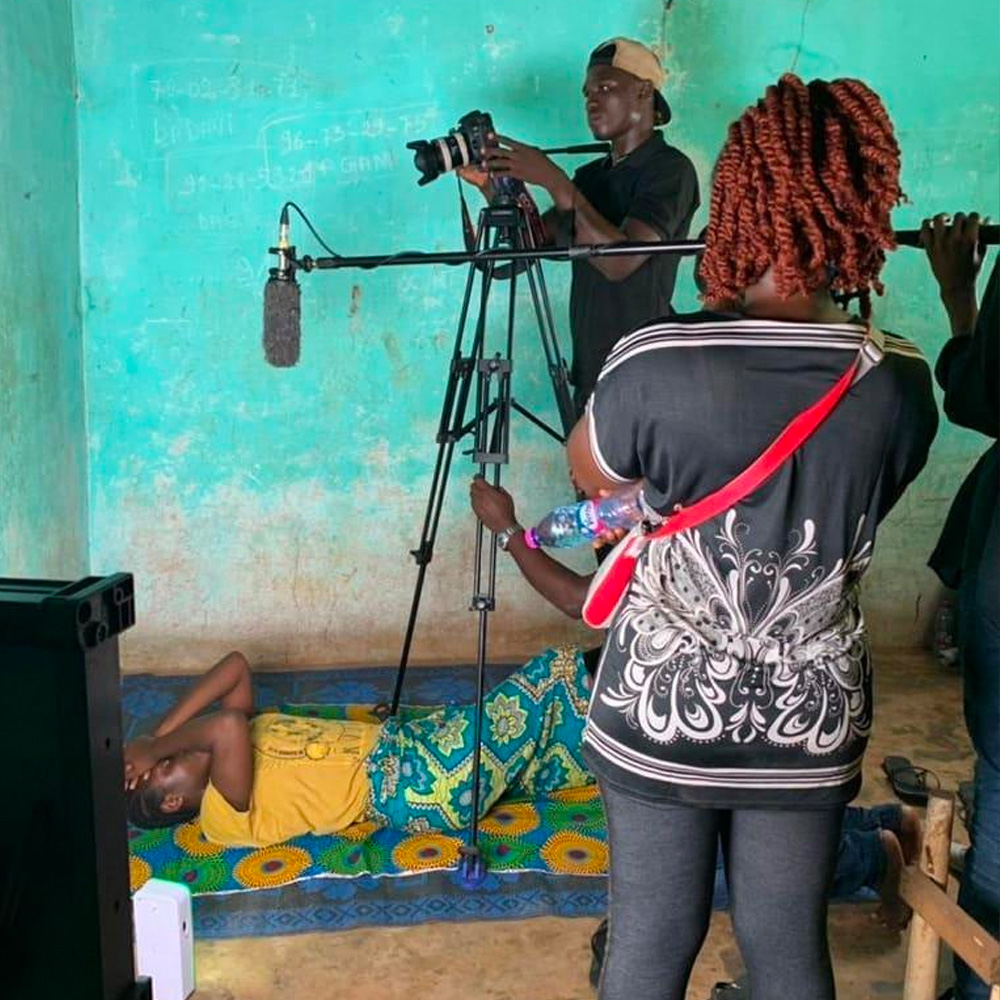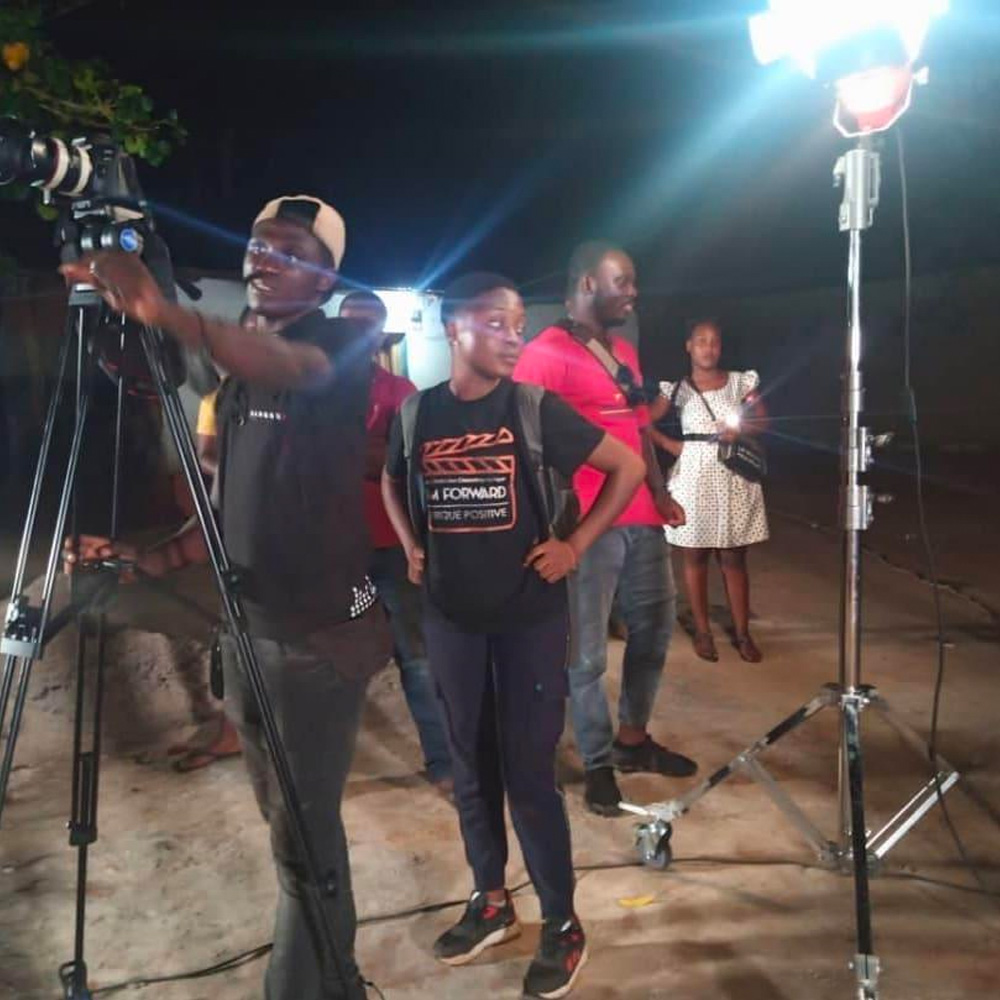COME, I’LL SHOW YOU
PROGRESS IN AGRICULTURE
After graduating, Anita Nounyo was unable to find a job as a hydraulic engineer. To her father’s disappointment, she returns to her home village unemployed. There, Anita helps the local handyman Komlan to repair the well. She learns how the village community buys compost from the neighbouring community in exchange for part of their harvest. But the yields have been poor in recent years and people suffer from poverty.
Anita develops a plan how both villages can help each other to get more water, more compost and more prosperity for everyone. If the plan worked out, maybe she could win back her father’s respect too….
 
In case your browser doesn’t allow the video to be automatically available, please click here to be re-directed to YouTube: UMOJA
COME, I’LL SHOW YOU
PROGRESS IN AGRICULTURE
After graduating, Anita Nounyo was unable to find a job as a hydraulic engineer. To her father’s disappointment, she returns to her home village unemployed. There, Anita helps the local handyman Komlan to repair the well. She learns how the village community buys compost from the neighbouring community in exchange for part of their harvest. But the yields have been poor in recent years and people suffer from poverty.
Anita develops a plan how both villages can help each other to get more water, more compost and more prosperity for everyone. If the plan worked out, maybe she could win back her father’s respect too….
 
In case your browser doesn’t allow the video to be automatically available, please click here to be re-directed to YouTube: UMOJA

COME, I’LL SHOW YOU THE
FILMMAKERS
| Screenplay | Jeannine Bessoga |
| Director |
Armand Sossou |
| Director of Photography |
Esso-Solim Kayaba |
| Sound |
Godsway Da Silveira |
| Editor |
Maxime Abassa, Mourwane Ouro Gaffo |
| Assistant Director |
Rebecca Wilson |
| Camera Assistant |
Mourwane Ouro Gaffo |
| Sound Assistant |
Brice Sodjati |
| Props |
Jude Koudaya |
| Continuity |
Eugénie Kotoutou |
| Production Manager |
Maxime Abassa |
COME, I’LL SHOW YOU THE
FILMMAKERS
Screenplay
Jeannine Bessoga
Director
Armand Sossou
Director of Photography
Esso-Solim Kayaba
Sound
Godsway Da Silveira
Editor
Maxime Abassa, Mourwane Ouro Gaffo
Assistant Director
Rebecca Wilson
Camera Assistant
Mourwane Ouro Gaffo
Sound Assistant
Brice Sodjati
Props
Jude Koudaya
Continuity
Eugénie Kotoutou
Production Manager
Maxime Abassa

COME, I’LL SHOW YOU THE
FILM INFORMATION
| Type | Fiction |
| Length | 15:23 min. |
| Language |
French, Ewe with English subtitles |
| Country of origin | Togo |
| Year | 2021 |

COME, I’LL SHOW YOU THE
FILM INFORMATION
Type
Fiction
Length
15:23 min.
Language
French, Ewe with English subtitles
Country of origin
Togo
Year
2021
COME, I’LL SHOW YOU THE COUNTRY OF ORIGIN
TOGO
Togo (officially the Republic of Togo) lies on the Atlantic Ocean with a coastline only 52 km wide and borders Ghana, Benin and Burkina Faso. Lomé is the capital of Togo, the official language is French. However, the approximately eight million inhabitants also communicate in Ewé, Kabyé, Mina and many other languages.
>/br>
Togo is one of the poorest countries in the world. About one third of the population cannot read or write. The socio-political situation remains tense despite democratization processes.
>/br>
Journalists in Togo often work in a climate of intimidation and violence. Although diversity of opinion is generally considered high, many journalists avoid topics such as corruption, the role of the military and national security issues. Togo is ranked 71st out of 180 countries in the 2020 Press Freedom Rankings published by Reporters Without Borders.
COME, I’LL SHOW YOU THE COUNTRY OF ORIGIN
TOGO
Togo (officially the Republic of Togo) lies on the Atlantic Ocean with a coastline only 52 km wide and borders Ghana, Benin and Burkina Faso. Lomé is the capital of Togo, the official language is French. However, the approximately eight million inhabitants also communicate in Ewé, Kabyé, Mina and many other languages.
>/br>
Togo is one of the poorest countries in the world. About one third of the population cannot read or write. The socio-political situation remains tense despite democratization processes.
>/br>
Journalists in Togo often work in a climate of intimidation and violence. Although diversity of opinion is generally considered high, many journalists avoid topics such as corruption, the role of the military and national security issues. Togo is ranked 71st out of 180 countries in the 2020 Press Freedom Rankings published by Reporters Without Borders.

